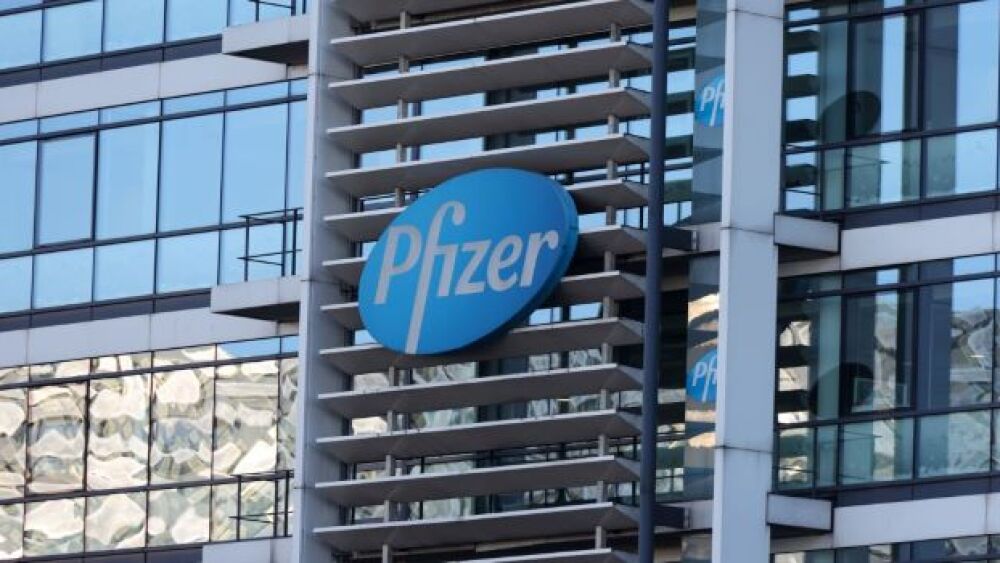Pfizer will cease operations within Russia and proceeds from its subsidiary in that country will be donated to provide direct humanitarian support to the people of Ukraine.
Pierre Suu/Getty Images
In response to the ongoing Russian invasion of Ukraine, Pfizer will cease operations within Russia and proceeds from its subsidiary in that country will be donated to provide direct humanitarian support to the people of Ukraine.
In a brief announcement, Pfizer said it has joined with the international community to condemn the invasion of Ukraine “and the brutal situation it has created.” The cessation of business will include the initiation of new clinical trials in Russia and the halt of patient recruitment in ongoing studies in the country. Pfizer said it will work with the U.S. Food and Drug Administration and other regulatory agencies to transition studies to other trial sites outside of Russia. Those patients who are already enrolled will continue to be assessed.
Additionally, Pfizer will halt all planned investments with Russian suppliers it has partnered with that would be used to support manufacturing improvements in that country. Pfizer does not own or operate any manufacturing in Russia.
Although the company will halt its business operations in Russia, Pfizer will continue to deliver its life-saving medications to the people of that country.
“Ending delivery of medicines, including cancer or cardiovascular therapies, would cause significant patient suffering and potential loss of life, particularly among children and elderly people. A voluntary pause in the flow of our medicines to Russia would be in direct violation of our foundational principle of putting patients first,” the company said in a statement.
At the same time as Pfizer is halting its operations within Russia, the company announced it has entered into additional clinical trial collaboration and supply agreements with IDEAYA Biosciences. The expanded partnership will support the continued evaluation of darovasertib and crizotinib combination therapy in a Phase II study in patients with metastatic uveal melanoma (MUM), as well as in a Phase I clinical trial in patients with cMET-driven tumors, such as hepatocellular carcinoma (HCC) and/or non-small cell lung cancer (NSCLC).
Darovasertib is a PKC inhibitor, and crizotinib is a cMET inhibitor. The two drugs are currently being assessed in patients with MUM and patients with GNAQ or GNA11 mutant skin melanoma in an ongoing Phase I/II clinical trial. Preliminary data in MUM showed robust clinical activity with a manageable side effect profile. Data from the MUM study is expected in the middle of this year.
“We have an opportunity to positively impact the treatment of patients in this high unmet medical need population,” Matthew Maurer, vice president and head of clinical oncology and medical affairs at IDEAYA Biosciences said in a statement.
In COVID-19, Pfizer Chief Executive Officer Albert Bourla noted that it is likely that a fourth booster shot of its vaccine will be needed to fend off another surge of infections. In an interview with Face the Nation, Bourla stated that more viral variants are on the way and that Omicron, the most recent variant, was able to evade the immunity protection the vaccine provides.
“The protection we are getting from the third (dose) it is good enough - actually quite good for hospitalizations and deaths,” Bourla said. He noted though that the protection from the third booster did not last as long against Omicron as hoped, CNN reported.
Health agencies have not recommended a fourth shot. The company is submitting its data to the FDA and will await its recommendations. Additionally, Pfizer is working on a new version of its vaccine that will protect against the Omicron variant and other variants of concern.
Featured Jobs on BioSpace





